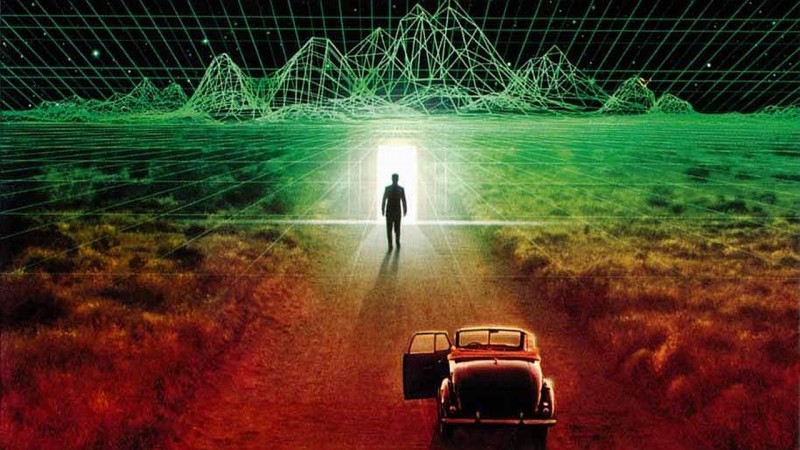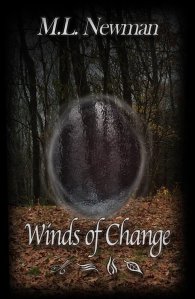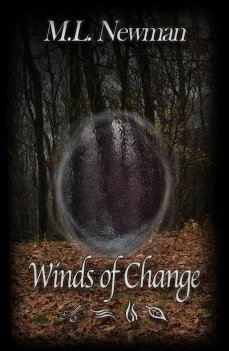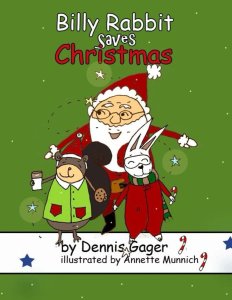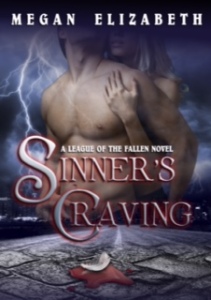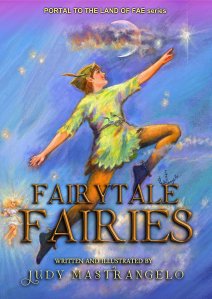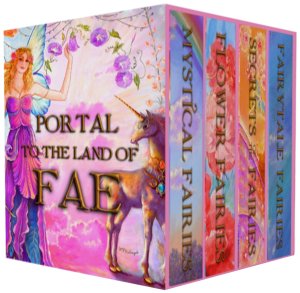I met George R. R. Martin, one of the most widely-read heroes of epic fantasy writing, when he arrived in Victoria, B.C. – home of AbeBooks – on a book tour. Winner of Hugos, Nebulas, Stokers, and World Fantasy Awards, George is a well-recognized and accomplished name in the business.
[Editor’s Note: This interview took place in 2006, before HBO Productions purchased the broadcast rights for the entire A Song of Ice and Fire series.]

George Martin: “There’s a lot of evidence that my books seem to be the fantasy series for people who don’t like fantasy.”
Credit: http://www.georgerrmartin.com
|
AW: Do you remember the first story you wrote when you were a kid?
GM: First story . . . I probably still have it in a drawer somewhere. I’m a real pack rat; I save everything. I have this drawer, a trunk—it depends on how you define a story. I have this booklet; it’s like a space encyclopedia that I wrote as a kid. One of those tablets, with the marble covers, you know, where you take your pen and you fill in the white part until it’s black and blue? It’s all written in that. An Encyclopedia of the Planets, with me doing the artwork, which mostly consisted of me drawing a circle, and then me writing a few things about the planet. It’s a strange mixture of fact and fiction. It’s got Mars on it, like Mars is the red planet and it has canals, and then it’s got the planet Orm or something that I made, where I made up stuff about it. And it’s got planets from Flash Gordon and Rocky Joe Space Ranger, which is a show I watched, mixed with planets that are entirely my own invention, as far as I know, mixed with real planets. It’s sort of block printed. It must have been first grade, because I hadn’t learned handwriting yet, which I think is second grade. (Laughs)
AW: Wow. That shows a lot of dedication at such a young age.
GM: Of course it’s not finished. I didn’t finish anything for decades.
AW: So you had an interest in science fiction since you were quite young?
GM: Yeah, that’s sort of what I’ve always really read. I often think comic books were the things that made me a reader. You learn to read in school with Dick and Jane, but the Dick and Jane stuff was so dull! (Laughs) Run, Dick, run. See Spot run. You know, the stories were stupid, even for a first or second grader. Years later I saw some of the famous McGuffey readers, go back further, things that my mother’s generation would read from in the 1930s or 1920s, and those things were filled with real stories from real writers that the kids were learning. But my generation, the baby boomers, we had Dick and Jane, and that couldn’t convince me to keep reading. But Batman and Superman could: they were much more interesting than Dick and Jane. And when I found comic books I loved them and continued to read those for years.
AW: I know you’ve done some work in Hollywood over the years. Have you ever thought of working or adapting something for a Batman franchise or something similar?
GM: Well, you know I have my own Wild Card series, which is sort of my own version of Super Heroes, but you can’t just adapt whatever you want for Hollywood. You have to wait for a studio to hire you and I had interviews for some Super Hero type jobs, but I never actually got any. They’ve done some good adaptations in recent years. The X-Men and the Spiderman franchises in particular have done good work. My first publication in a professional magazine, I wasn’t paid for it, but it was Fantastic Four #17. It was a letter. (Laughs). It said something like, “Stan Lee, better than Shakespeare.”
AW: Which writers do you most admire?
GM: It would be a long list. Writers had the biggest impact on me when I was young; you’re more impressionable. You have less life experience, you’re more likely to be wowed. I read science fiction, fantasy, horror, all interchangeably, I didn’t make sharp genre distinctions as other people do these days. Robert A. Heinlein certainly was my favourite writer. I was given, by a friend of my mother, a hard cover copy of, Have Spacesuit – Will Travel – Scribner’s Juveniles. It was the first actual science fiction book I read, and was for many years the only hard cover book I owned because we couldn’t afford hard covers. But, it hooked me on science fiction, so instead of buying four comic books, I’d buy one paperback book for 35 cents. In junior high I read Tolkien’s Lord of the Rings, and that’s still a book I admire vastly. I re-read it every few years, or at least dip into it. H.P. Lovecraft had a great impact on me at a certain point. Horror, his stories scared the hell out of me. Robert E. Howard – you know, Conan the Barbarian is great for a 13-year-old boy. It’s a good age to discover Conan. Certain writers you have to read at certain ages.
AW: I agree completely.
GM: Like, I missed Edgar Rice Burroughs. Years later in my Hollywood age, I got hired by Disney to adapt A Princess of Mars, so I picked up Edgar for the first time, and (laughs) he’s . . . not a good writer to sample at 45.
AW: When you were coming up with the series Ice and Fire, what sorts of inspirations did you draw on?
GM: To a certain extent, it depends on when you’re talking about. The first notion of the series came to me in ’91, when I was mostly working in Hollywood. The first chapter came to me very vividly. I did about 50 pages until Hollywood called again, and I had to put it in a drawer for what turned out to be a couple of years. At that stage I didn’t really know what I had. A couple years later, I came back to it and found it still as fresh as when I’d written it. Finally I wrote about 150 pages and a brief summary of where I saw the story going. At that point I visualized it as a fantasy trilogy, with only three books instead of the seven I now visualize.
AW: There’s a certain attachment that you have to the characters as you’re reading the series, and then all of a sudden, they’re dead. (George laughs) It’s nail-biting! Did any of your editors ever express concern that major characters were going to be killed off?
GM: No, everybody seems to like that.
AW: It’s great to read, it just terrifies me.
GM: Well, that’s the idea – that you should care. If the character’s in peril, you should be afraid to turn another page.
AW: I read that Tyrion is your favourite character.
GM: Doesn’t mean he’s safe. (Laughs) He’s the easiest character to write. I like his wit, and he’s got a certain amount of torment and angst to him, which makes for good drama.
AW: Not many of your characters are free from sin, in many ways, which is interesting.
GM: I wanted to affect a certain human reality. I don’t like fantasy where everybody is either a hero or a villain, black or white. I prefer to paint with shades of grey. I think it’s more true to life. We’re all of us angels and demons in the same skin. We do good things and the next day we maybe do terrible things.
AW: Some critics have described your work as “high” fantasy. What does that mean to you?
GM: Well, it’s Tolkien-esque fantasy. I mean, you can slice the onion as many slices as you want, but some critics, for their convenience more than anything else, divided the broad area of fantasy into sub-genres, like “urban” fantasy or “dark” fantasy.
AW: I’ve read very little fantasy in my life, but I immediately took to your books. I think it’s partly the political intrigue as well.
GM: I read fantasy, but I also read historical fiction and I wanted to give these books some of the flavour of good historical fiction. In that sense it’s probably grittier and more realistic than most epic fantasy.
AW: A lot of people really strive to find parallels between reality and these stories.
GM: I’ve certainly been inspired by things from real history. I try to avoid one-to-one correspondence. I mean, there are certain similarities. You can look at Aegon the Conqueror and William the Conqueror. There are certain similarities, but there are important differences. William the Conqueror didn’t have dragons or marry his two sisters. (Laughs) Those are rather important distinctions.
AW: Marrying the two sisters brings up an interesting point. There are some that label your work as “dirty” because there is incest and graphic sexual scenes. Are you faced with people saying, “I really like the work, but sometimes there’s just too much sex?”
GM: I get those letters sure. Not a lot of them, but . . .
AW: Well, historically, it’s part of life.
GM: Sure. Well, you can’t marry your sister anymore, but I’m sure there are people who still sleep with them. (Laughs) There are a million books out there, which is my reaction when I get one of these letters. You don’t happen to like a lot of sex in your fantasy, then there are 37 other authors you could read who don’t have sex in their fantasy. Have fun. It’s an important part of human life and necessary for any kind of realistic portrayal. That’s my audience. It’s a sad commentary on American morals that the sex is the thing that people object to. I find that sad, but it is true. I can describe an axe entering a person’s skull and no one objects, but if I describe a penis entering a vagina, there’s an outcry.
AW: Some people say, “Oh, I avoid fantasy because the cover art is too dorky” or something. I notice that this cover for A Feast for Crows is very different than any of the covers previously.
GM: They’ve re-packaged the whole series and now the old books have been re-issued with matching, understated cover art. There’s a lot of evidence that my books seem to be the fantasy series for people who don’t like fantasy. And my publishers think there would be more of them if we could reach them, so they’ve gone with this understated cover art, precisely to get those people who say, “Well, I don’t want to be seen carrying this thing with horses and knights and castles and dragons on the cover.” It’s annoyed some of the original fans. I get letters saying their sets don’t match anymore. And, also from people who loved the old art.
AW: It worked though. I mean, number one on The New York Times bestseller list.
GM: It does seem to be working. Even with something as successful as Harry Potter, re-issuing them with the more adult cover.
AW: I don’t know how they could possibly sell more copies of Harry Potter. I thought everyone in the free world owned one.
GM: No, they’re trying to reach all the people who’ve never read anyone except Dan Brown. (Laughs)
Interview by Andrea Warner
